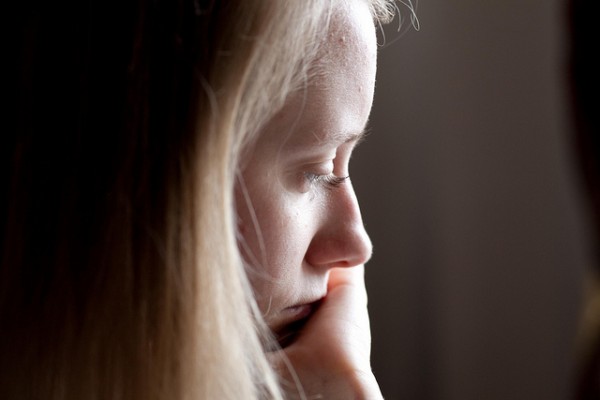
For Ron Oden, the imaginary conversations were the first sign that his wife Felicia was becoming mentally ill.
“She would tell me about these conversations that we had, that I couldn’t remember. And I’ve got a good memory. So she’s relating my responses. And some of them sounded like me and others didn’t. So I’m thinking, ‘Did we have this conversation? Did this happen?’”
Oden recently recalled his Felicia’s battle with paranoid schizophrenia at a Summit on Mental Illness hosted by the Coachella Valley Health Collaborative (CVHC) at Cal State San Bernardino’s Palm Desert campus. The Mental Health Summit is the first part of a campaign funded by a $100,000 grant from Riverside County to improve awareness of mental health issues, increase access to treatment, and reduce stigma.
Felicia was only in her mid-thirties when she started hearing voices and sank into a deep depression. “She was so intelligent, so articulate and good-looking. But all those things dissuaded people from really seeing what the true problems were,” Oden said. “While those things can work with you in life, when you’re dealing with addressing issues of mental health, they can also work against you.”
Soon after their second daughter was born, Felicia went downhill fast. She refused treatment, the couple divorced, and she eventually had to be institutionalized. Ron says the ordeal was particularly hard on their girls. “My oldest daughter knew her mother before she became ill. So she saw this transition in her mother that she didn’t understand… My youngest daughter has never known her mother as a mentally healthy person. And so what she considers to be normal – is not.”
Oden shared his family’s experience at the Mental Health Summit in order to encourage greater acceptance of the mentally ill. “It’s an illness. Just like nobody goes out and says I’m going to get cancer, no one goes out and says I’m going to become mentally ill. Those things happen. They’re still people. They still need our love. They still need our support and understanding.”
The summit is tied to the data from the Health Assessment Resource Center (HARC), which tracks health data for the Coachella Valley. HARC’s 2010 Executive Report noted that 44% of people living in Eastern Riverside County have no mental health coverage.
Their survey found that almost 30 percent of parents think their child had social or emotional difficulties, yet only one in five of those children actually sees a therapist or psychiatrist.
Summit director Gary Jeandron says, “It’s a staggering thing to know that many people who have insurance don’t realize that they can get coverage. Many parents don’t realize that their kids have access to mental health services.”
Lucrecia Tellez, a coordinator for the Coachella Valley chapter of the National Alliance on Mental Illness (NAMI), supports the idea of a public service announcement to influence the way people view mental illness. “We need to take fear away. People perceive us as a hidden danger to society. But of course most people who have mental illness are not violent. ”
Ilene Schimmel, also with NAMI, suffers from bipolar disorder. She says people tend to be more sympathetic if they view mental illness as a physical problem: an issue with brain chemistry. She says she once took that approach (successfully) with a bill collector: “I told him, I’m sorry I have a brain disease and it’s inoperable. His attitude was more shock and sympathy. If I had said I can’t work because of a mental illness, so I can’t pay my bills, he would have said, ‘Well, you have to pay them anyway.’ ”
The conference also highlighted the success of local programs for high school students who’ve been traumatized by street violence or domestic abuse.
“They feel like they’re crazy, or that they’re identified as crazy, which is a very stigmatizing word,” Perla Ray, a therapist at Family Services of the Desert, says. “We tell them that the things they’re going through are very normal because they have experienced something so overwhelming. They start to feel better and they’re not at distracted or hyper-vigilant. They’re better able to sleep well at night. And they have better relationships with other people.“
CVHC Director Gary Jeandron thinks people need to realize the value of this kind of cognitive behavioral therapy – where the counselor helps patients understand their unhealthy thought patterns and chart a new course.
“We’re quick to go to medication. We’ll medicate quicker than we’ll go to therapy. You can wonder if this is because we’re a fast-paced society, we just want a quick fix, and a lot of times our emotional issues really take a long time to delve into. It seems that most of us would rather take a pill rather than try to deal with it on a cognitive level, on an emotional level,” Jeandron said.
Jeandron has asked his advisory board to write up a strategic plan to increase access to mental health services in the Coachella Valley and reduce stigma. That plan will be unveiled to community leaders in October.





